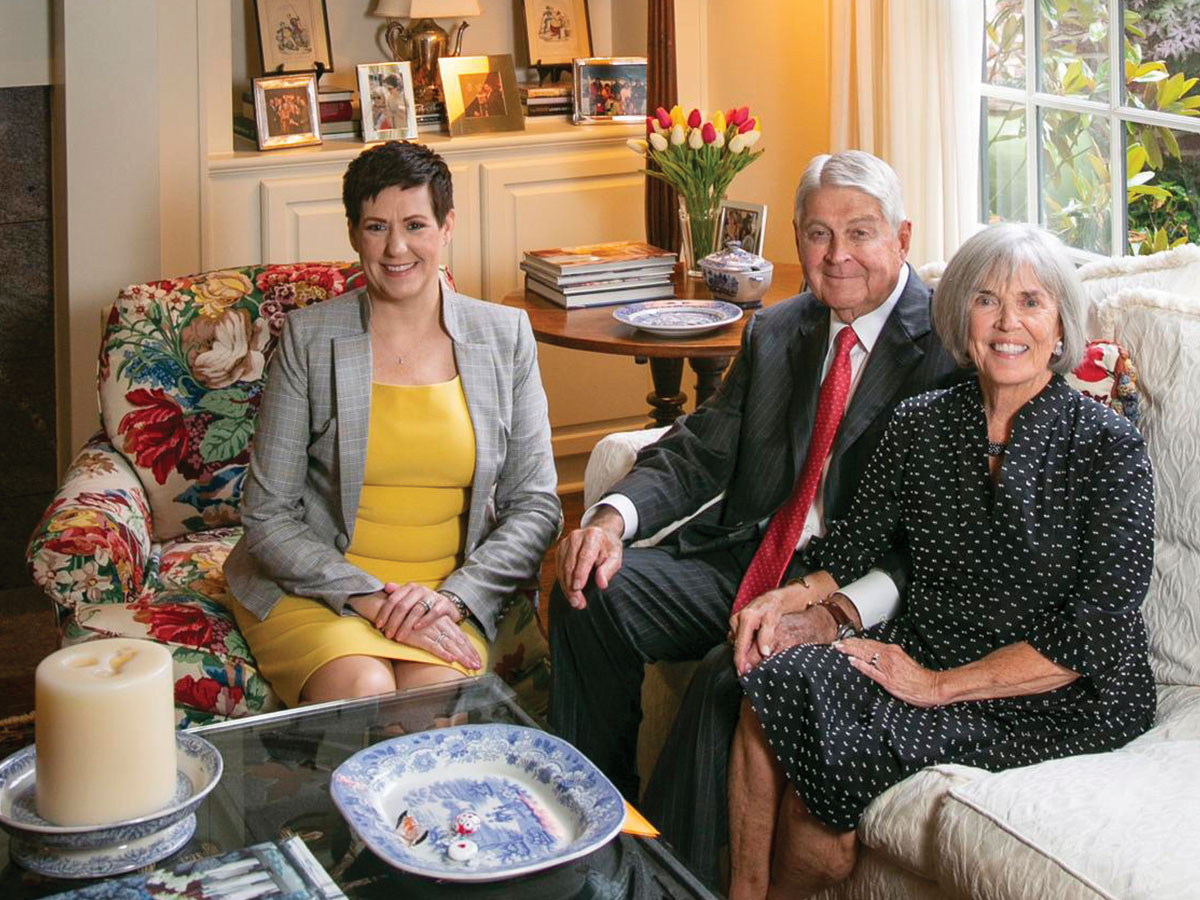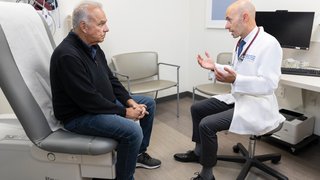Multiple Myeloma Research Gets a Boost
February 7, 2022

Ellis Skinner and his family business fund multiple myeloma research.
After undergoing a physical in October 2009, Ellis Skinner was diagnosed with multiple myeloma, an incurable type of bone marrow cancer. He turned to UT Southwestern for guidance and care through his cancer journey. After he was in remission, and to help improve outcomes for future patients, he and the management of the Ellis M. Skinner Co. made a $200,000 gift to support his physician’s multiple myeloma research at UT Southwestern’s Harold C. Simmons Comprehensive Cancer Center.
“The cancer came out of nowhere,” Mr. Skinner says. “I’ll never forget sitting with Dr. Larry Anderson and my wife, Linda. I’d been diagnosed with this incurable cancer, and I had two pages of questions that all revolved around the question of ‘how long am I going to live?’ In 2010, I spent my 69th birthday undergoing a stem cell transplant.”
Life Expectancies Have Surged
According to the Multiple Myeloma Research Foundation, just a decade ago patients diagnosed with multiple myeloma survived only a few years. Today, the disease is rarely curable but highly manageable. With sophisticated therapies, the average survival period is now eight to 10 years.
“You can’t really apply the word ‘cure’ to multiple myeloma yet,” Dr. Anderson, Associate Professor of Internal Medicine, says. “But we’re hoping with further research and combinations of immunotherapy and other forms of myeloma therapy that we can get there.”
Multiple myeloma will almost always come back, Dr. Anderson says. Presently, Mr. Skinner has had a good response to treatment for more than nine years and has been in complete remission for more than five years. He shows no sign of disease or symptoms and undergoes ongoing maintenance therapy to stay in remission.
Philanthropic donors like the Skinners who opt to directly fund research can drive important medical discoveries, and their investment provides a catalyst to secure additional funding.
Daniel K. Podolsky, M.D.President of UT Southwestern
New Treatments Will Make an Impact
“A number of promising new treatments for plasma cell cancers such as multiple myeloma are currently in clinical trials,” Dr. Anderson says. “We’ll be starting trials in the near future, and this gift will make a huge impact by allowing us to do this research the way it needs to be done.”
“We are grateful that Ellis and Linda and the Ellis M. Skinner Co. management team recognize the value and importance of clinical research,” says Daniel K. Podolsky, M.D., President of UT Southwestern. “Philanthropic donors like the Skinners who opt to directly fund research can drive important medical discoveries, and their investment provides a catalyst to secure additional funding. Moving basic research discoveries into clinical trials accelerates progress in improving and extending the lives of our patients.”
Skinner Family Business Establishes a Lasting Legacy
Mr. Skinner’s father founded the family business, the Ellis M. Skinner Co., in 1942 as a tile, marble, and granite enterprise. Today the company’s primary business is supplying skilled personnel to the construction industry. Skinner Co. Managing Partner Jessica Toney is especially grateful to UT Southwestern.
“Our story could have been written in an entirely different way. Because of the treatment, research, and dedication Mr. Skinner received from the team at UT Southwestern, the story you are reading is the one we are writing,” Ms. Toney says. “Saving one life can silently save and affect a million other lives, reshaping the future for everyone. Ellis has always instilled in me the importance of giving back, and this gift to support Dr. Anderson’s research is important to us. I know we will see it come back tenfold through another life.”
“Cancer is the worst thing and the best thing that ever happened to me,” Mr. Skinner says. “It makes me appreciate everyone and everything. It made me think about what the real need is out there and inspired me to give back. I hope Dr. Anderson finds a cure and develops drugs – particularly immunotherapy drugs – that will turn multiple myeloma into a chronic illness rather than a death sentence.”












